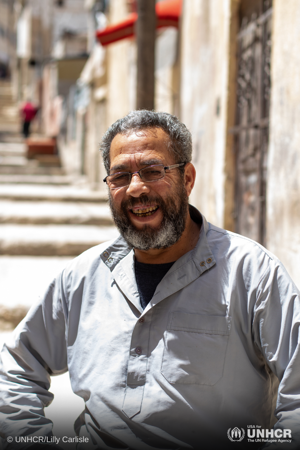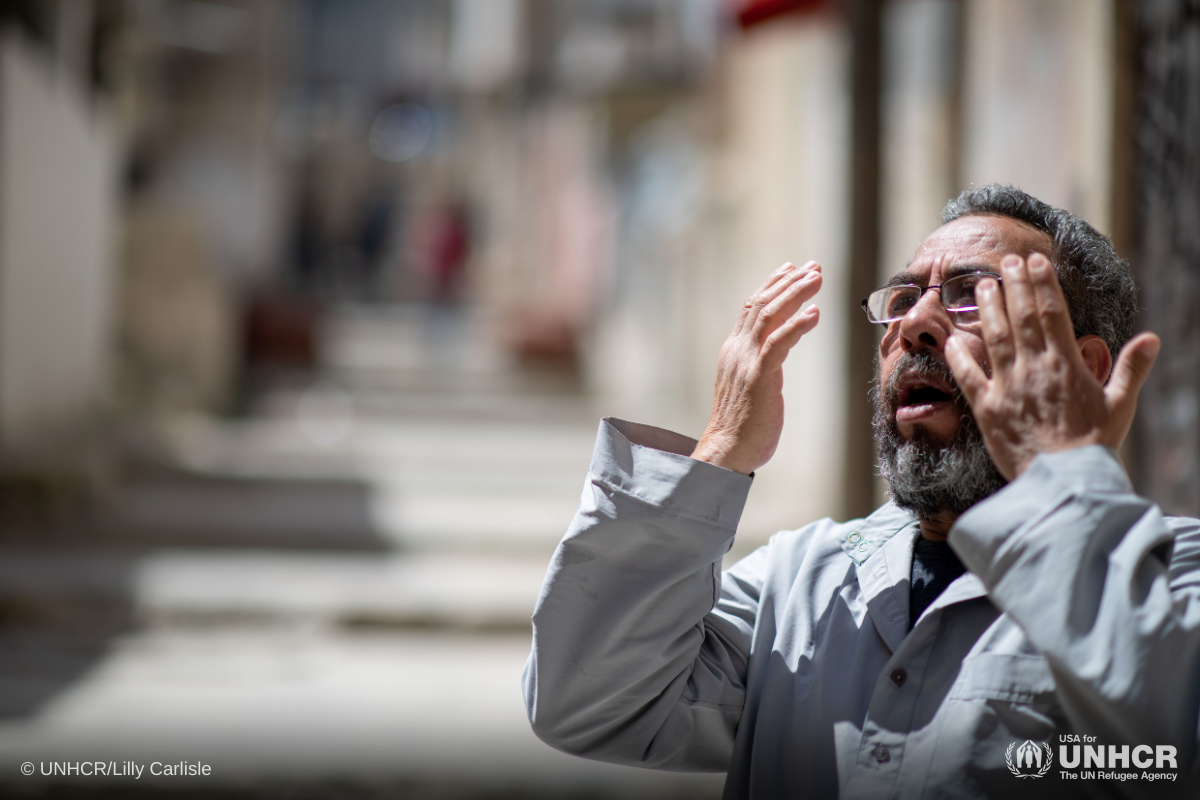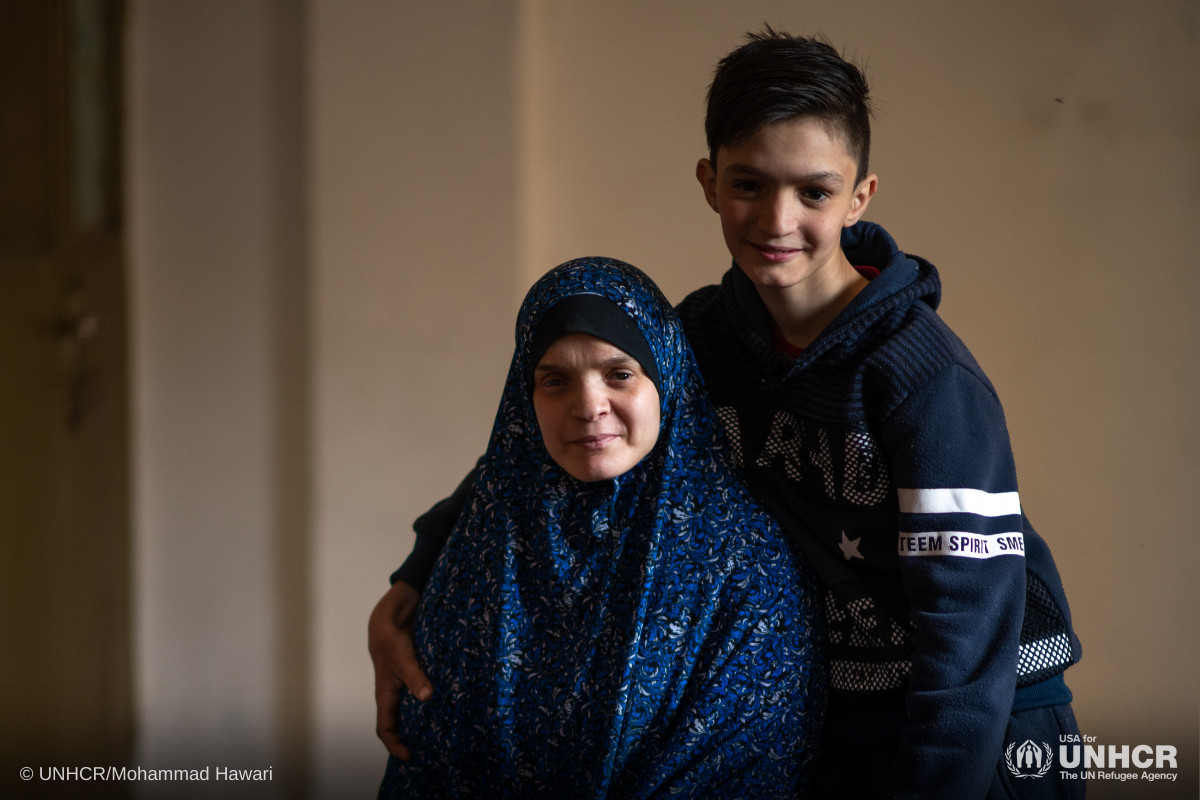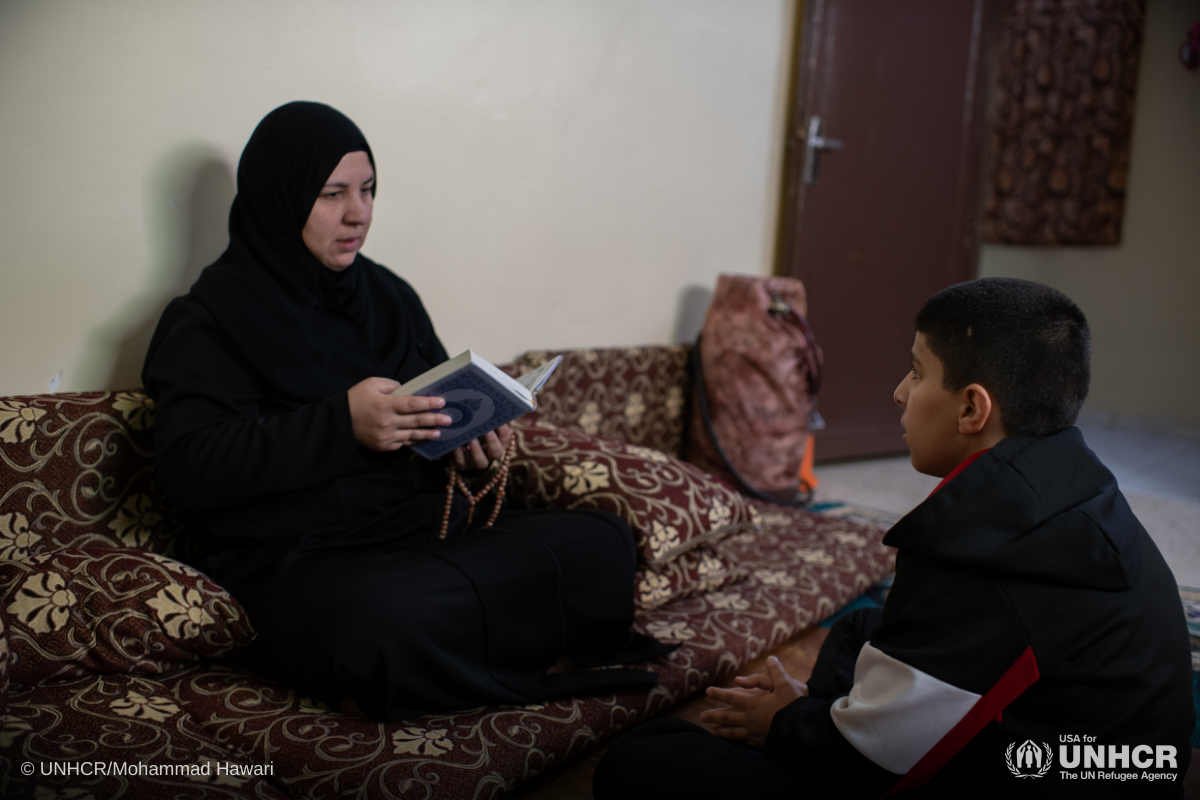This is how refugees celebrate Ramadan
Ramadan is a time of spiritual reflection, prayer and service to humankind. During the holy month, Muslims fast from dawn to sunset, read the Quran and increase their generosity with those who have less. Ramadan is also a very social month centered on the home where families and friends come together to share laughter, food and joy.
But for millions of Muslim refugees, feelings of uncertainty and isolation during Ramadan are not uncommon. Separated from their loved ones and traditions, they're forced to practice their faith amid dire circumstances. Yet none of these challenges stop refugees from preserving their faith and observing Ramadan – which for many is an important source of peace and strength.
Here are some ways refugees are celebrating Ramadan during these unprecedented times:
Abdelwahed

Abdelwahed, also known as Abu Bilal, sits on his balcony to watch the people that pass by the long corridors of his neighborhood in Amman. How different Ramadan is these days compared to how it was back home in Syria.
“Ramadan in Homs was beautiful. I used to go to work before dawn, have Suhoor at the shop and stay up all night. I used to pray in the afternoon then take my children for a ride in the car, as a treat to smell the fresh air,” he remembers.
Abdelwahed has been a refugee in Jordan for the past nine years. As a devout Muslim, he goes to the mosque every day to pray and socialize with neighbors and friends. He sometimes walked towards the mosque just to feel closer to God.
Observing Ramadan away from his loved ones has been hard, but Abdelwahed’s faith gives him strength and peace during these challenging times.

Abdallah
Abdallah is everything to his visually impaired mother. Every day after he arrives from school he organizes their laundry, takes her to the local market to buy fruits and helps her with everything else that she might need.
“The best moment of the day is when Abdallah is next to me. Even if he leaves me just for an hour, I feel sad and worried. He is the only thing left for me in this life,” says Abdallah’s mother, who lost her sight as a result of the psychological effect of the Syrian conflict.
Mother and son have been living in a modest apartment in Amman, Jordan, for the past nine years. While the 13-year-old boy sometimes wishes to have more time to play with the other kids, his love for his mother is greater than anything else.
“When I grow up, I will take her to a doctor. If this dream comes true, the first thing I would like her to see is me,” the boy explains.
This Ramadan, Abdallah and his mother will be fasting and praying at home. Even though Um Abdallah won’t be able to watch her son perform their religious traditions, she will always feel Ramadan deep down in her heart.

Haneya
Chicken in a tray is a common dish served at the Iftar during Ramadan. Exact recipes vary by country and cook, as do the accompaniments. But for Syrian refugee Haneya, sharing her version of this recipe is a way of caring for others during Ramadan.
A chicken, some onions and a pinch of spices are what it takes to get a delicious dish. Back in Syria, Haneya had a proper kitchen where she would cook for her extended family and friends. But since she arrived to the Za’atari refugee camp in Jordan, conditions have been very different. She cooks in an improvised kitchen inside her shelter and she doesn’t get to share her dishes as she did before.
Like Haneya, hundreds of thousands of Muslim refugees living in refugee camps will celebrate Ramadan under lockdowns and dire conditions. But despite all the hardship, Haneya is grateful for having a place to cook and it keeps her smiling during difficult times.
Ali
Ali is 12-years-old and shares a single room with his mother and three siblings in a small apartment in Jordan. They fled Syria in 2013 after it became too dangerous for the family to stay in the country.
“When I crossed the border, I immediately felt safe. I just sat on the ground and started crying,” recalls Ali’s mother, Jameela, who remembers the relief she felt when they arrived to Jordan.
After nine years, the family has found some stability. The children are registered in school and Jameela has received cash assistance support from the UN Refugee Agency to help cover the rent.
While the past months in quarantine have been hard for the whole family, Ali is excited for this upcoming Ramadan and dreams of spending it with his family and friends.

Support refugees during Ramadan...
This holy month of Ramadan, millions of refugee families across the globe will be celebrating in isolation and away from home. Becoming a USA for UNHCR monthly donor is the best way to let them know that they are not alone and give them hope of a better future. Every action that we take, big or small, can make a difference.


